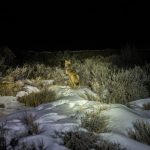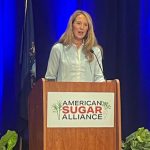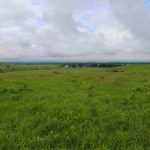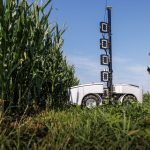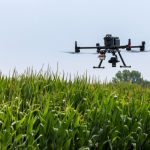Feds may decide fate of Perkins County Canal
The decision on whether Nebraska’s Perkins County Canal is ever built probably rests with the federal government, but maybe not in the way most people think.
Don Ament, a former Colorado state senator and agriculture commissioner, said Wednesday the U.S. Fish and Wildlife Service may have the final word on the ongoing conflict between Colorado and Nebraska over water in the South Platte River.
Apportioning the water that flows across the state line near Julesburg is at the heart of a lawsuit Nebraska recently filed in the U.S. Supreme Court accusing Colorado of violating the 1923 South Platte Compact and interfering with Nebraska’s attempts to build a canal to siphon water from the river in Colorado for irrigation in Nebraska.
Ament’s comments, along with a warning to upstream water users in Colorado, came after a town hall meeting in Julesburg Wednesday attended by more than 100 people and conducted by the Colorado Department of Natural Resources. The meeting originally was supposed to answer questions people have about the Perkins Canal, but DNR officials said their efforts to inform the public are now hampered by Nebraska’s lawsuit.
The lawsuit alleges Colorado is deliberately delivering less water than is called for in the 1923 South Platte River Compact. That compact requires Colorado to deliver 120 cubic feet per second of water across the state line during irrigation season, which runs from April 1 to Oct. 15 each year.
Nebraska’s lawsuit claims Colorado is allowing irrigators with water rights junior to the compact to divert water even when less than 120cfs is crossing the state line, a charge Colorado officials vehemently deny.
The compact also allows Nebraska to finish building what is known as the Perkins County Canal, which would divert water from the South Platte near Ovid, Colo., during the winter months for storage in a reservoir somewhere in western Nebraska.
Those attending Wednesday’s meeting were told that more information about the future of the canal would be available after Colorado files its response to Nebraska’s lawsuit. Jason Ullman, Colorado’s state water engineer, told the crowd there’s no guarantee SCOTUS will take up the lawsuit and, even if it does, it could be a decade or more before a decision is rendered, and gave examples of other interstate water lawsuits.
“Kansas v. Nebraska took over a decade; Texas versus New Mexico and Colorado is now in its 12th year.,” Ullman said. “And so this is not … a fast process, even if they decide to take the case.”
In any event, Ullman said, Colorado gets its day in court as well; a response to the lawsuit is due in September, after which more information can be released about Denver’s efforts to protect water and property rights in Colorado.
WILDLIFE IMPACT
It may not be the Supreme Court that dictates a resolution to the conflict, however. Among the concerns about the Perkins Canal are questions about its effect on the Platte River Recovery Project, which has rehabilitated wildlife habitat in Nebraska’s Big Bend area of the Platte River between Lexington and Grand Island. That project arises from a mandate from the U.S. Department of the Interior to rehabilitate habitat that had been damaged by irrigation diversions upstream. A commission of officials from Colorado, Nebraska, Wyoming and U.S. Fish and Wildlife hammered out an agreement to restore the Big Bend area. Besides more than $6 million in water augmentation purchases to replace irrigation depletions, Colorado has contributed $25 million for land purchases and recovery work on the Platte River.
Amy Ostdiek, who heads the Colorado Water Conservation Board’s Interstate, Federal, and Water Information Section, represents Colorado on the PRRP commission. She told the Julesburg audience that, while she couldn’t give specifics, the Perkins Canal posed a threat to the recovery project.
“The thing I really want to emphasize is that the program has been very successful.” Ostdiek said. “It has resulted in a number of streamlined (Endangered Species Act) consultations throughout the three states. The species are doing well. Colorado has shown up and been an excellent partner in this program.”
And that may be a deciding factor in resolving the conflict over the Perkins County Canal.
Don Ament was Ostdiek’s predecessor on the PRRP commission, appointed in 2007 when the project began. In an interview after Wednesday’s meeting, Ament told The Fence Post the Interior Department probably will have a say in the matter. He said he’d been contacted recently by USF&W’s representative recently to vent his frustration with the Colorado-Nebraska conflict.
“He said he’s hearing all this bull****,” Ament said. “He told me, ‘When all this nammering around gets all done, it’s still going to be the feds that are going to tell you how this is going to work.’ He didn’t say ‘the feds,’ but that’s what he meant.”
Ament also contradicted the widely accepted theory that the Perkins Canal would only affect the lower reach of the South Platte.
“What I’m trying to say, and not too many people are listening, it’s not just the lower end of the river,” he said “When you get down to the recovery program, that is not just District 64. That’s Wyoming and that’s Denver. If you guys think you’re free in all this, you’re not.”
